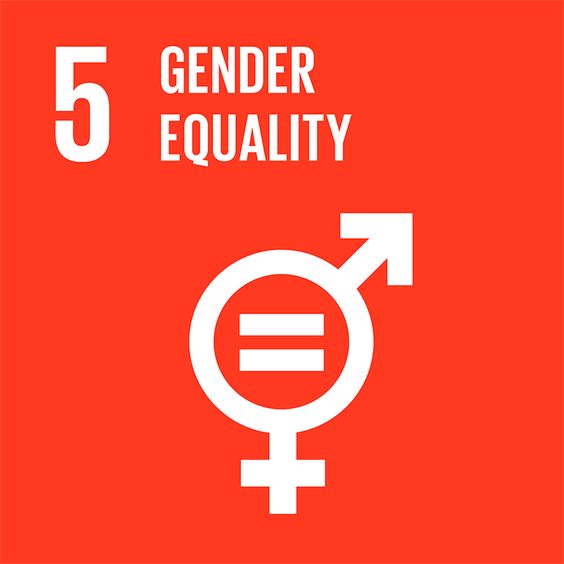Today 8 March is International Women's Day. This year the theme is Generation Equality which focuses on issues facing women across generations. Age Action today launched a briefing paper, Carrying Inequality - How Cumulative Inequality Impacts Older People.
To understand more about the effects of discrimination and disadvantage across a lifetime, the paper explores current information about a number of the ‘grounds’ of discrimination. We focus on poverty, income, employment, and education as a simple way of introducing the idea of cumulative disadvantage, however this is just a small part of a much more complex picture that includes wider issues such as health, accommodation and transport.

The Sustainable Development Goals (SDGs), also known as the Global Goals, were adopted by all United Nations Member States in 2015 as a universal call to action to end poverty, protect the planet and ensure that all people enjoy peace and prosperity by 2030.
The 17 SDGs are integrated—that is, they recognize that action in one area will affect outcomes in others, and that development must balance social, economic and environmental sustainability.
Equality for people who are older, and for each of us as we age, cannot be achieved without achieving equality for all of us throughout the life course.

It is clear that overall women are disproportionately impacted by cumulative inequality through their lives. Cumulative inequality is the idea that inequality adds up over the course of people’s lives, and across generations. This means that people with advantages are more likely to get opportunities for further advantages, and people with disadvantages are more likely to be exposed to risks of further disadvantage.
For example, people whose families have more money might get access to ‘better’ schools and then have a better chance of both getting into and paying for third level education, which in turn gives them a better chance to get a well-paid job.
Low socio-economic status - being in low-skilled work or a low-paid situation over the long term – is a particular type of disadvantage that has a large influence on cumulative inequalities in health and income security outcomes in later life.
Cumulative disadvantage is a predictor of inequality in older people, and an area of real concern particularly for women.

When we look at the statistics, it is clear that the odds are tilted towards women being less financially secure by the time they reach retirement age. The difference between men’s and women’s pension income in Ireland is estimated to be between 30-35%.
On average, women earn less money over a lifetime because women almost always take on the role of looking after family by being caregivers for children, parents and others. This time taken out of the workforce to do the vital unpaid work of raising children or providing care to others can mean women are less able to contribute to their pension savings. For some women, the high cost of childcare can also make it difficult to return to work as the cost of care can eat up a large part of the earnings. The high cost of childcare can also mean that women seek part-time work to fit around their caring responsibilities.
Working women in Ireland, on average, earn less per hour than working men. There are many reasons for this, including that women more often have part-time work , are less likely to be at senior levels and are more likely to be in the lowest paid jobs . From this starting point, we can see that on average, women will have less money to put towards pension savings, home ownership, healthcare and education.
Policy Implications
Age Action supports and advocates for equality and human rights for all older people. Everything we do is based on a recognition of the diversity of identity and situation among older people and a concern for equality for all older people. In addressing ageing, our work includes a concern to influence perspectives on and responses to ageing.
Age Action is calling on the Government to plan sufficiently for an ageing population to ensure that people remain active, engaged, and valued in their communities for as long as feasible, with choice and control over their lives, regardless of their age.
By implementing progressive policies across all Government departments, including social protection, health and housing, the State can improve quality of life for older people ageing in their community while providing value for money for the Exchequer.
There is a generation of older women who did not enjoy the protection of the State or a framework in which to realise their rights. Age Action frequently hears from women who continue to be affected by the unintended consequences of recent pension policy changes. Many were subjected to the Marriage Bar and remained at home to be the primary carer of raise their children. Recent changes to the averaging calculation of pensions and credits for caring have left many without eligibility for a full State pension in their own name.
Lessons should be learned in the development of policy responses now to protect future generations from the disadvantages these women have experienced: this includes recognising and planning for the experiences of women as carers, employees and mothers to making sure they reach old age with security and quality of life and are not disadvantaged by caring roles and gender norms.
Women's Rights in Review, 25 years after Beijing takes stock of how the landmark gender equality plan, the Beijing Platform for Action, is being implemented and calls for greater parity and justice. The review of women’s rights shows that despite some progress, no country has achieved gender equality.
To address the cumulative disadvantage in work and income experienced by many women, we need to address contributing factors such as the gender pay gap, the impact of caring responsibilities, discrimination, and women’s shorter working lives.
